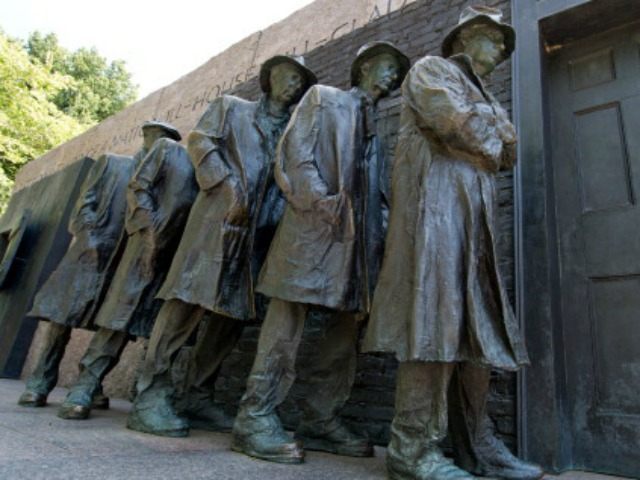In his book, The Forgotten Depression, economic writer James Grant, editor of the prestigious Grant’s Interest Rate Observer, gives us the history of the depression of 1920-21.
It was a very deep depression, as deep as the one that succeeded in 1929. But in this case, the government did not intervene, and it was over in less than two years. Was this a coincidence? Grant does not think it was. He believes, as this writer does, that present government interventions have deepened our current economic malaise and are retarding a full recovery.
Economic orthodoxy, which is eagerly embraced by virtually all governments today, says that the remedy for economic slumps is for government to print more money, enable more debt, and directly spend more money. This is right out of the playbook of British economist John Maynard Keynes, who died 69 years ago.
The curious thing about Keynes’s ideas is that there is nothing even remotely scientific about them. There isn’t even logic or fact to support them.
One of Keynes’s assertions was that a slump without government intervention would just keep getting worse and worse. Yet a brilliant Keynesian disciple, Franco Modigliani, refuted that idea even before the master’s death in 1946.
In 1962, economist Milton Friedman said about Keynesian remedies: “I know of no… coherent or organized body of evidence justifying them…. [They] cannot be demonstrated to be true by logical considerations alone, [and] have never been documented by empirical evidence….” This statement remains as valid today as it was 53 years ago.
The usual argument contemporary Keynesians fall back on is that as bad as things are, they would be worse without their interventions. And surely, in the face of an economic crash, you wouldn’t suggest that the government do nothing, would you?
This kind of fact-free non-argument can be hard to rebut, but James Grant’s book is a powerful and fully documented rebuttal. In the case of the 1920 depression, the government did nothing, or if anything the opposite of what Keynesians would advise, for example by cutting its expenditure, and the patient revived quickly. In 1929 and again in 2008, the government did the opposite, and the patient either did not recover for more than a decade or has yet to recover.
Yes, the government did the opposite in 1929, despite what you were taught in school. The myth that President Hoover refused to intervene is just that: a myth. His interventions were not essentially different from those that followed from the Roosevelt administration. Popular British historian Paul Johnson explains this in his history of America, and the full record may be found in economist Murray Rothbard’s book on the Great Depression.
To understand why it is better not to intervene, one has to realize that most slumps are caused in the first place by two problems. First the government long ago intervened in the economy to create a financial system (the so-called fractional reserve system) which is inherently unstable. It then compounds the problem by creating far too much money, which enters the economy as debt, and which leads first to economic bubble and then to bust.
It should be obvious that a problem caused by too much government money creation, debt, and reckless spending cannot be solved by more of the same. These policies may make the patient feel better temporarily, just as another dose of heroin will stop withdrawal, but withdrawal is actually what the patient needs.
In the same way, when an economy crashes, it is because something is very wrong. The ensuing recession is not the problem; it is the cure. Bad debts and bad investments are liquidated so that a real recovery can follow. Assets do not disappear. Reckless investors lose them but prudent investors acquire them and make better use of them.
If the recession following the dot com crash of 2000 had not been stopped by the Greenspan Federal Reserve and the Bush administration, we would not have had the housing bubble and crash, and if that recession had not been stopped with massive stimulus, we might by now have a flourishing economy.
Recessions are indeed painful. But, like a fever, they are part of the cure. The cure, if left to run its own course, need not take a long time, as Grant’s history of the 1920 Depression shows.
This book is not only indispensable economic and American history. It is also, like all of Grant’s books, very pleasurable reading, full of colorful characters, wit, and the telling detail.
Hunter Lewis is co-founder of AgainstCronyCapitalism.org, co-founder and former CEO of Cambridge Associates, a global investment firm, and author of two recent books, Free Prices Now!, about the Federal Reserve, and Crony Capitalism in America 2008-12.

COMMENTS
Please let us know if you're having issues with commenting.